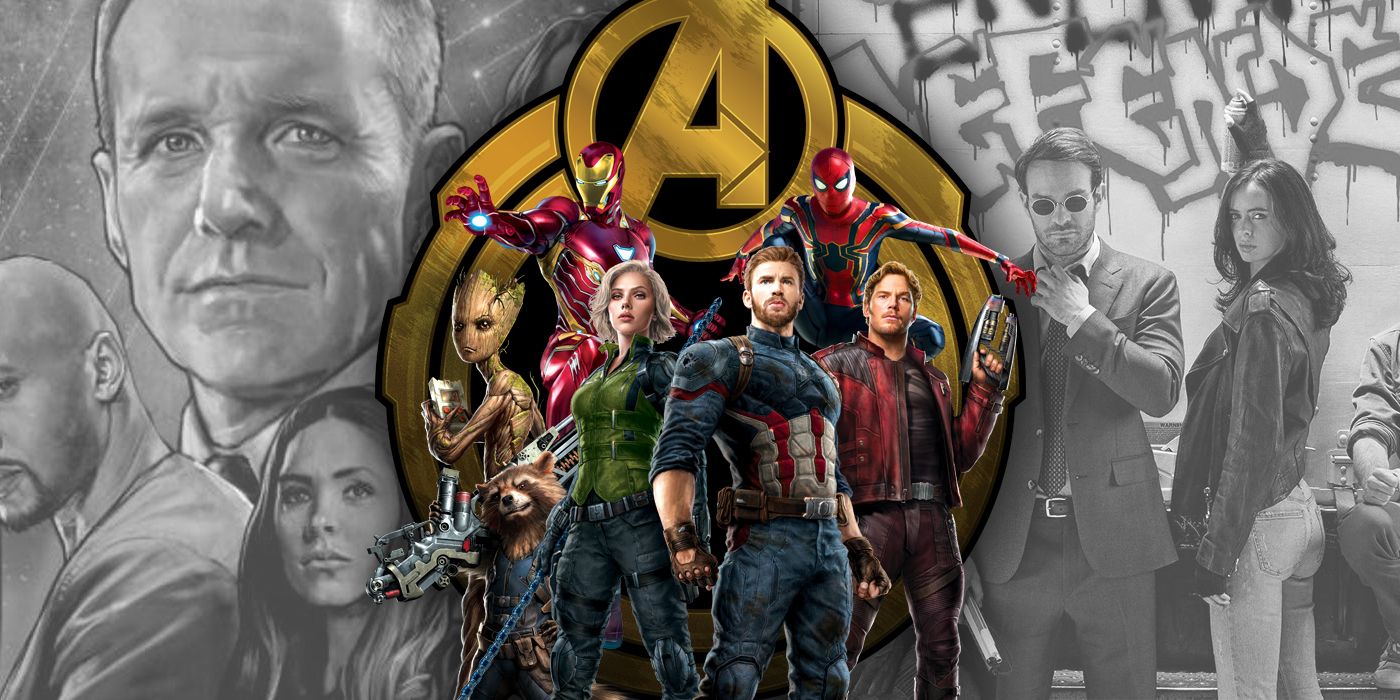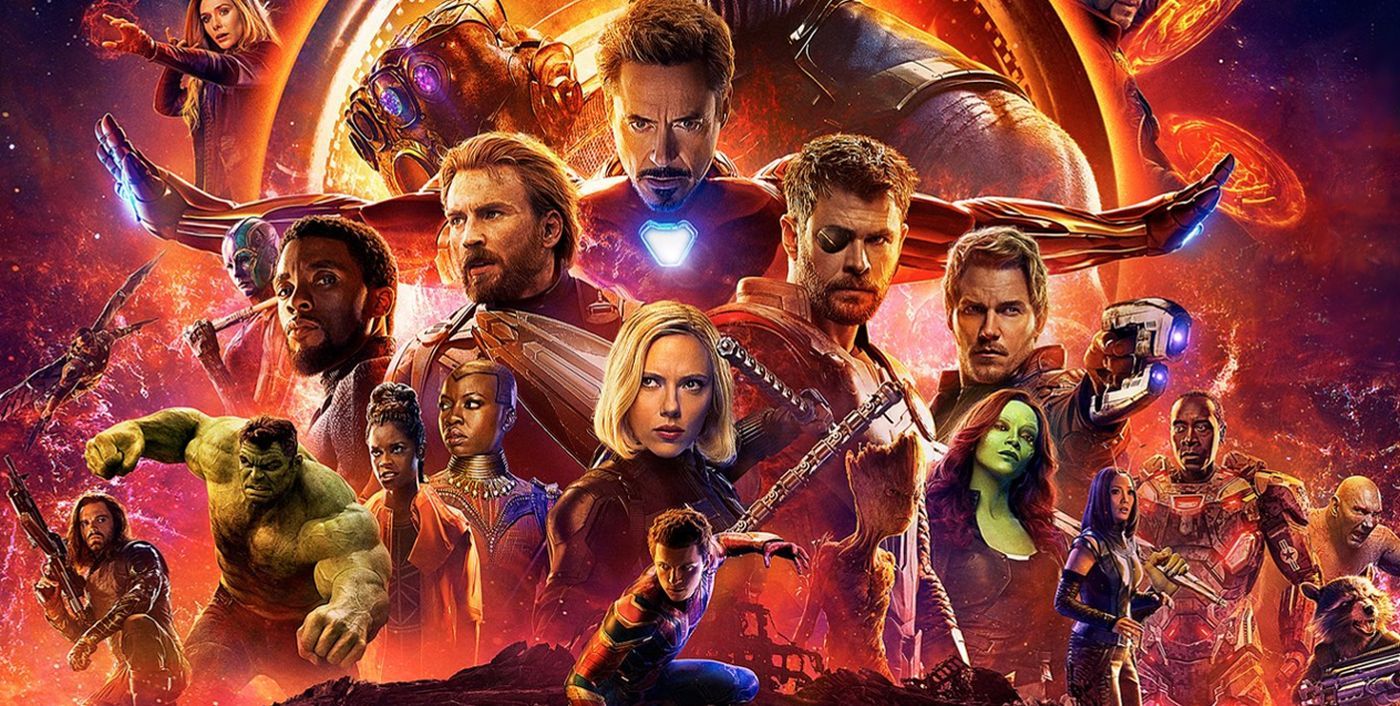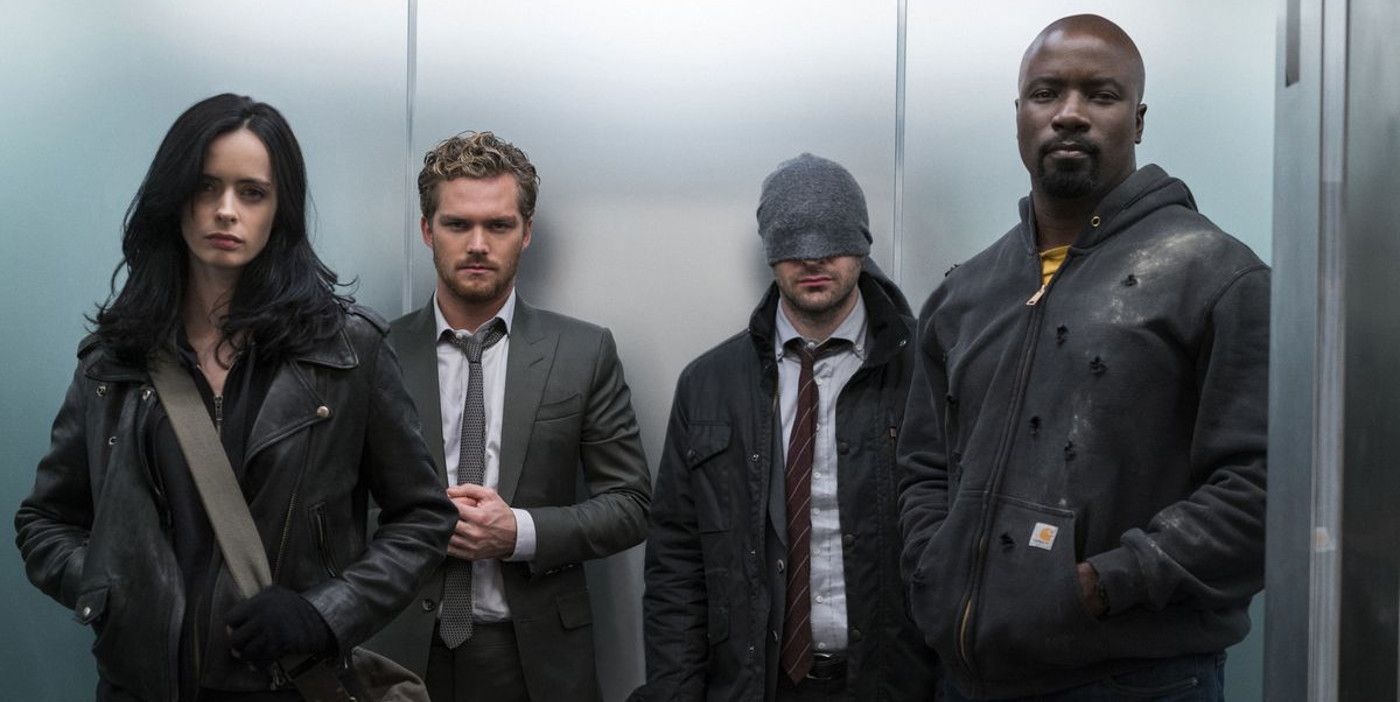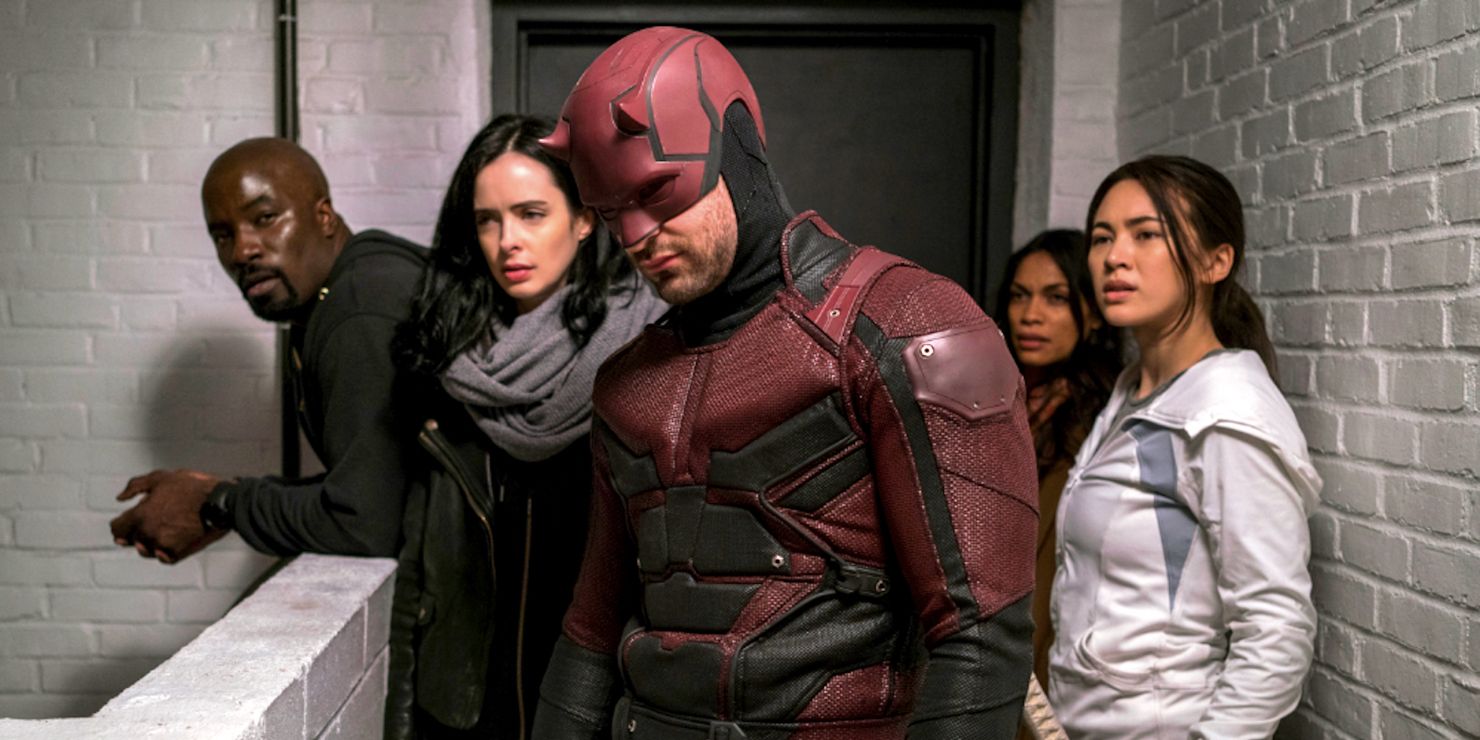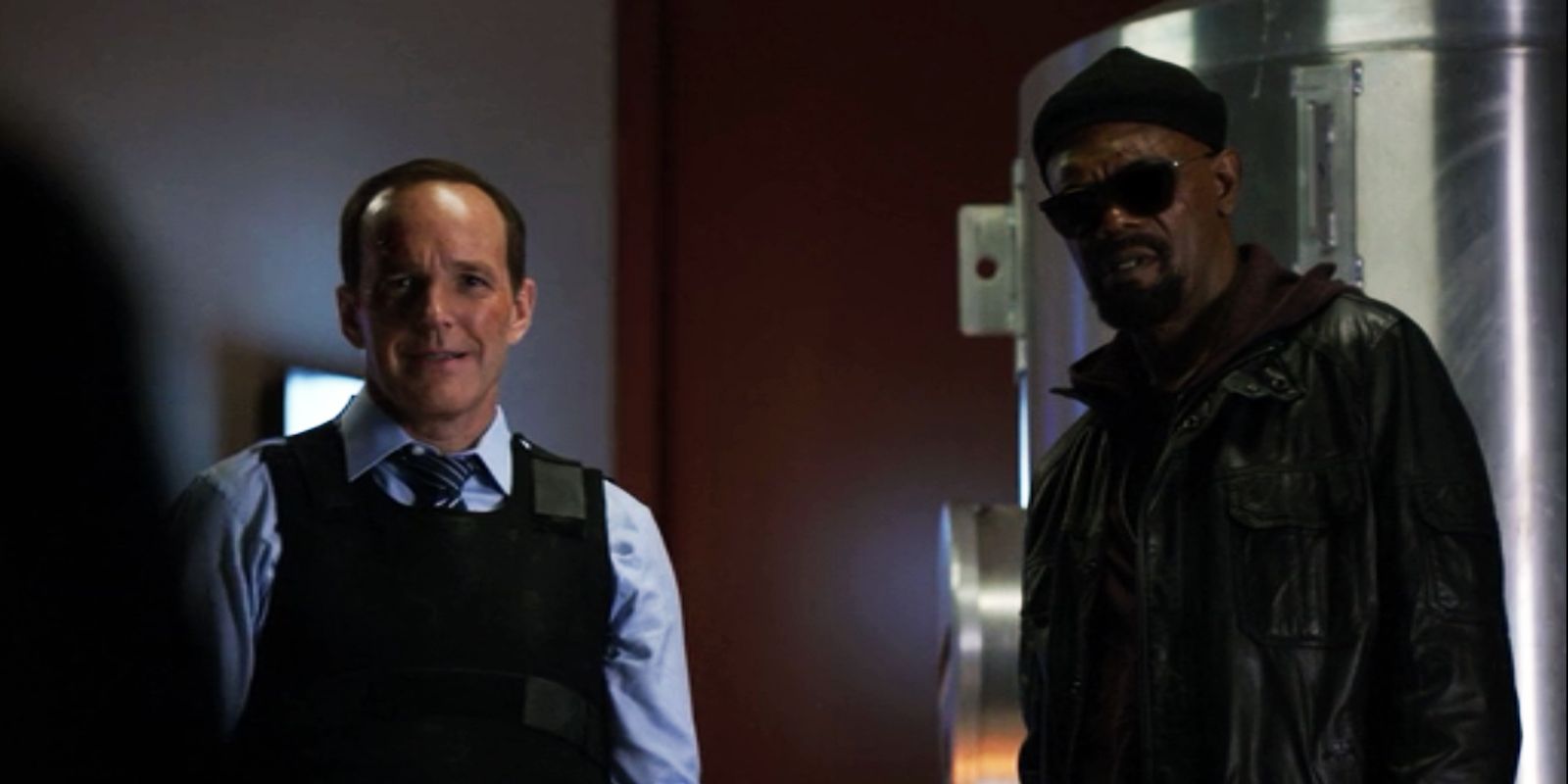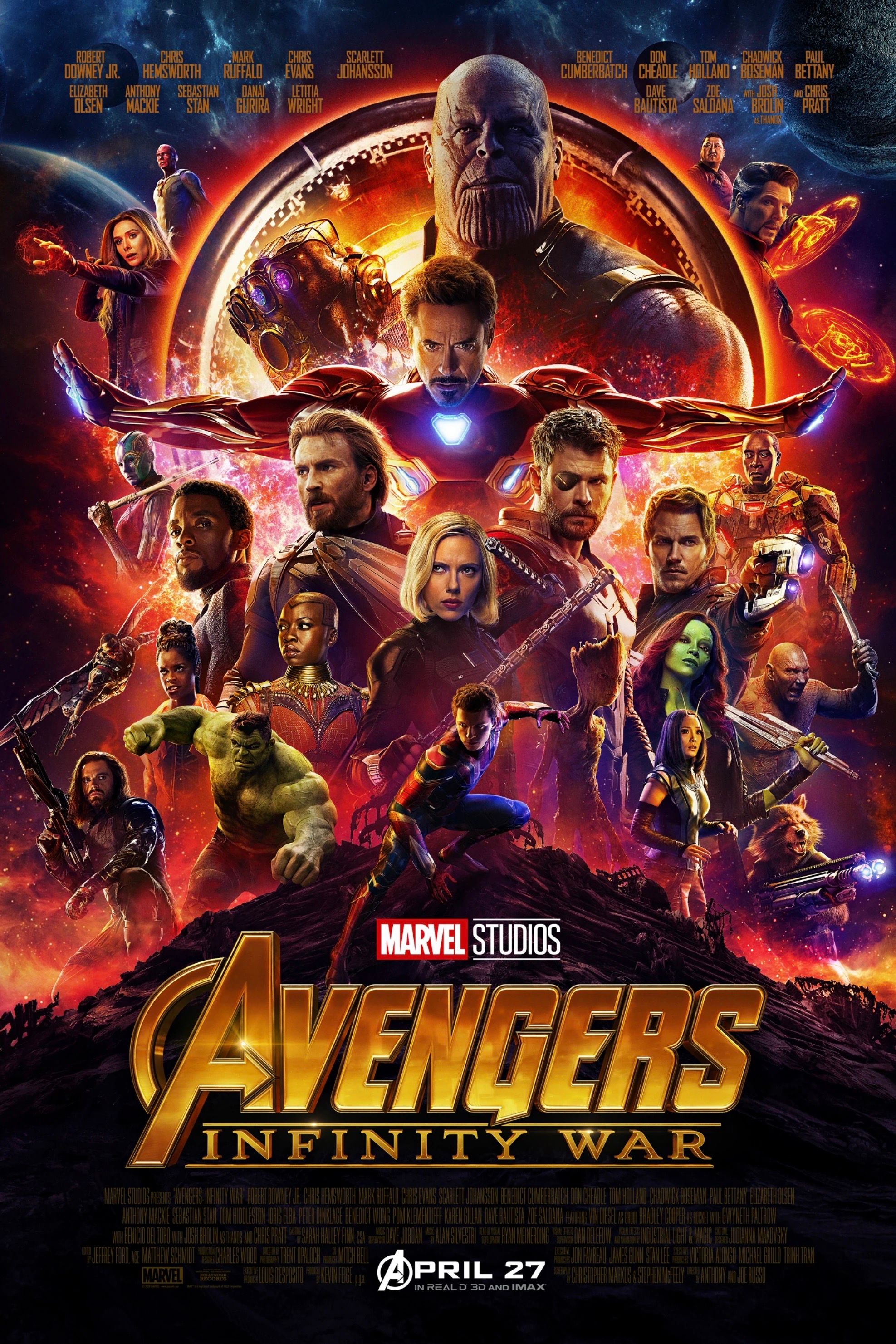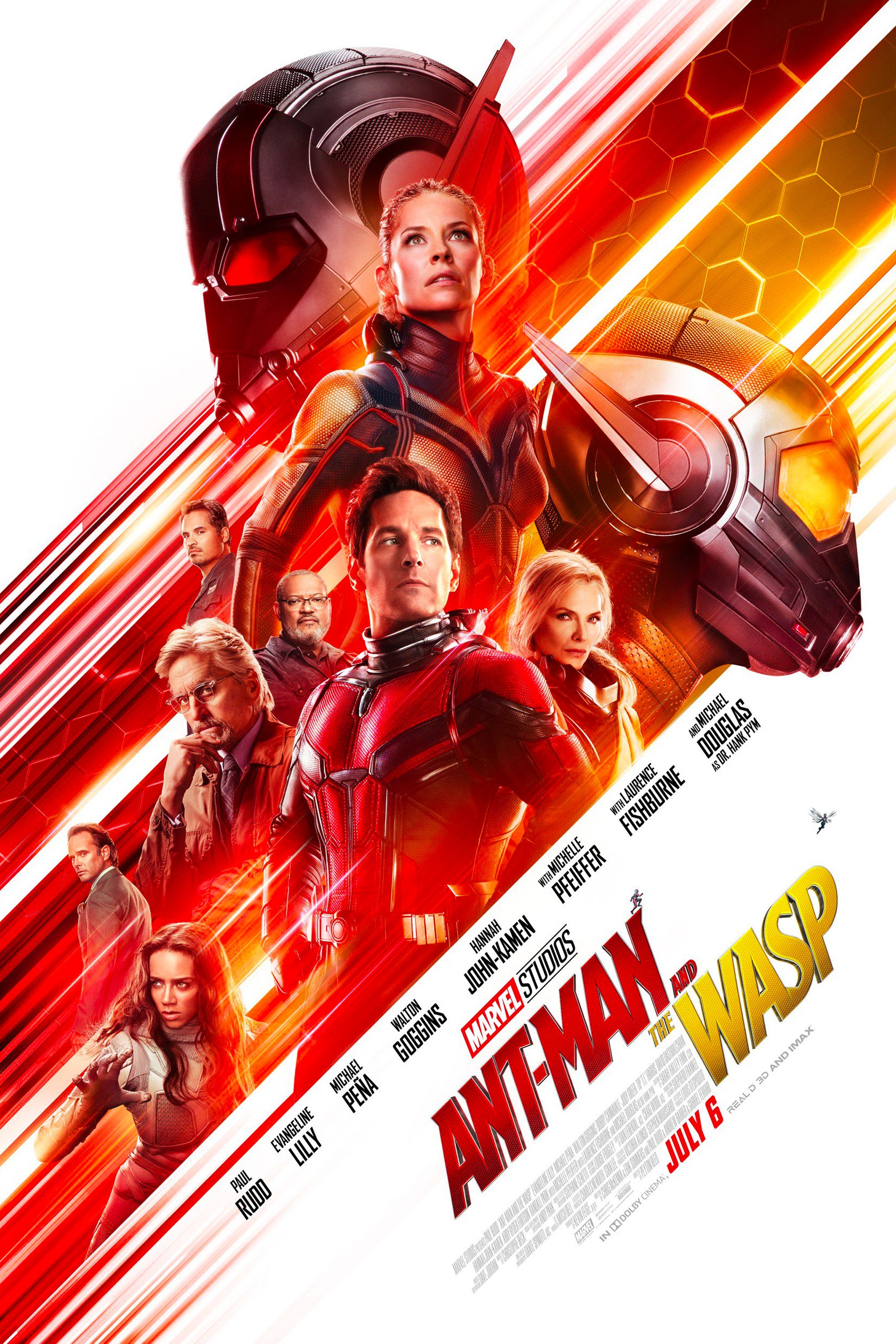The Marvel Cinematic Universe may more than just movies, but don't expect to see any TV characters in Avengers: Infinity War - or any future movies for that matter. The MCU represents arguably the most ambitious franchise and act of blockbuster film-making in modern Hollywood history. Over the course of eighteen films, the series has encapsulated endless intertwining plot-lines, characters and situations, taking place across time and space. What was once considered the biggest risk in the industry is now the gold standard for blockbuster and superhero cinema. With a worldwide gross of over $14bn, it's become the most successful franchise of all time, and all in the space of a decade.There are over a dozen films in various stages of production to come, and of course, Avengers: Infinity War looks set to be the epic that changes everything. This gargantuan movie, rumored to have cost anywhere between $300 and $400m, is the one Marvel fans have been waiting for. Finally, those prior 18 films of build-up will see Marvel's incredible array of characters band together to take on Thanos. It's the kind of ensemble most movies would kill for, and it's the dream that comic book fans have been waiting for.RELATED: Marvel's Original MCU Plan Led To A Different Infinity WarYet there are still some obvious omissions from this lofty epic. None of the characters from Marvel's TV projects are appearing in Infinity War. That means no appearances from anyone in Agents of S.H.I.E.L.D., nothing from Daredevil or Jessica Jones, no cameos from Luke Cage or Iron Fist, no Punisher, and no Inhumans.
- This Page: The Real Reason Marvel Movies and TV Are Kept Separate
We've Been Told Over And Over No Marvel TV Characters Are Infinity War
This is something fans have come to expect, as the cinematic universe has almost exclusively avoided even acknowledging the existence of the stories taking place on ABC and Netflix. The one time they crossed over properly was with Captain America: The Winter Soldier, which featured characters fleshed out by Marvel TV and whose twist completely pivoted Agents of S.H.I.E.L.D., but since then the two mediums have been distanced and reduced to passing references. That didn't stop fans expecting Infinity War to be a convergence point, although it's been clear for a long time that such things will probably never happen. Marvel's TV characters seem destined to be excluded from the MCU movies.
Indeed, the separation between the Marvel TV and cinematic worlds hasn't exactly been a harmonious one. In 2016, Agents of S.H.I.E.L.D. actress Chloe Bennet, when asked why the Avengers hadn't been called in to deal with the Hive crisis on the show, candidly said (via Nerdist), œPeople who make movies for Marvel, why don't you acknowledge what happens on our show? Why don't you guys go ask them that? Cause they don't seem to care! More recently on the other side, Kevin Feige said TV crossover looked incredibly unlikely.
The absence of the planet's greatest heroes from the show, as well as everything going on in the Defenders universe on Netflix, presents a commonly discussed plot-hole: if everything S.H.I.E.L.D. is dealing with is so major and potentially world-destroying, why doesn't Iron Man or Thor or Captain America turn up to help? And if S.H.I.E.L.D. or the Defenders are such big deals in what they do, why don't the Avengers call them up to help deal with Thanos? It's often hard to believe these stories even take place in the same vast universe: how can you believe The Defenders is a Marvel story when it takes place in New York but barely glances at Stark Tower? Well, there's a reason for that.
Marvel Studios And Marvel TV Aren't Part Of The Same Disney Subsidiary
The major reason for no crossovers to begin with was logistics. Obviously, chances are that Robert Downey Jr. and his A-List co-stars are a tad too busy to take a break from their endless filming schedules to make guest appearances on an ABC or Netflix show. Something like that is probably not covered in the standard Marvel actors' contract either.
RELATED: How Marvel Studios Really Works
However, when it comes to dealing with the latter concerns the lack of the TV world's presence in the movies that has more to do with the division in Marvel Entertainment. Kevin Feige, the head of Marvel Studios and the MCU's defining architect, long had rumored frictions with then Marvel Entertainment CEO Ike Perlmutter. In 2015, Perlmutter stopped overseeing development of Marvel Studios, which allowed Feige to report directly to the heads of Disney instead.
However, the television division remains under Perlmutter's department. Given the oft-discussed animosity between the pair, which allegedly came to a climax when Feige threatened to quit over budget questions regarding Captain America: Civil War, it makes sense that the movies and TV shows don't crossover in any impactful way.
Things Could Change Soon for Marvel TV
While that's the status quo now, change is coming to Marvel TV, regardless of storytelling feasibility. Disney will soon debut their own streaming service, and while it won't have any of the Netflix Marvel shows on it, a new live-action Marvel show will be among the exclusive offerings. Should this be done specifically under the Disney umbrella, it would give this particular Marvel TV project the kind of freedom and resources the ABC and Netflix shows lack (not to mention a bigger budget), and thus the chances of a crossover would be greatly increased.
But that's ignoring everything we've got so far. As it stands, the most realistic way that a crossover between the Marvel movies and the current crop of TV shows would happen is one of cold hard business: Disney would have to bring Perlmutter's division completely under their control. Even then, though, the simple logistics of lining up the long production of a major motion picture and the relatively sharp turnaround of a weekly television series make doing anything too grand still incredibly complex. We're dealing with a fundamental issue that dates back before Marvel Studios and Entertainment separated.
How We Can Expect Marvel Movies & TV To Work Together
In many ways, it's good for the various Marvel storytellers and show-runners if the two worlds remain separate. Not having to deal with close to 20 films and seven series worth of continuity can be freeing, and shows like those on Netflix have the chance to work with more adult story-lines that wouldn't fly in the PG-13 trappings of the movies. There is a sense of satisfaction to be found in the possibility of everything tying together neatly and with purpose, but when circumstances prevent that from happening, the options available have their benefits that are worth drawing attention to.
Related: All 32 MCU End-Credits Scenes Explained
This inescapable situation needn't be the be all and end all. Creatively, there are various options open as to how the TV and movie worlds could meet, they just need to bare minimum of communication. Even without cameos or cinematic crossovers, S.H.I.E.L.D. can still be impacted by Infinity War, while the New York-based Defenders can continue to live in a world affected by what happens on the big screen; Kingpin's rise came directly from the Battle of New York. It just needs the shows to make some considerations.
The fact remains, though, that it's one way. TV can make way for films, but not the other way around; Coulson is returning to the big screen in Captain Marvel, but as it's a prequel it's unlikely to even glance with S.H.I.E.LD. However, while that does beg the questions discussed at the start, it's better than nothing, and pleases the majority; fans who don't watch any Marvel TV aren't clamoring for an Avengers 4 interlude focusing on, say, Melinda May.
-
The connection between Marvel movies and TV has always been more complicated than the "it's all connected" adage suggested, and with Avengers: Infinity War that illusion is truly being shattered. But given how difficult it would be otherwise, perhaps it's for the best.

